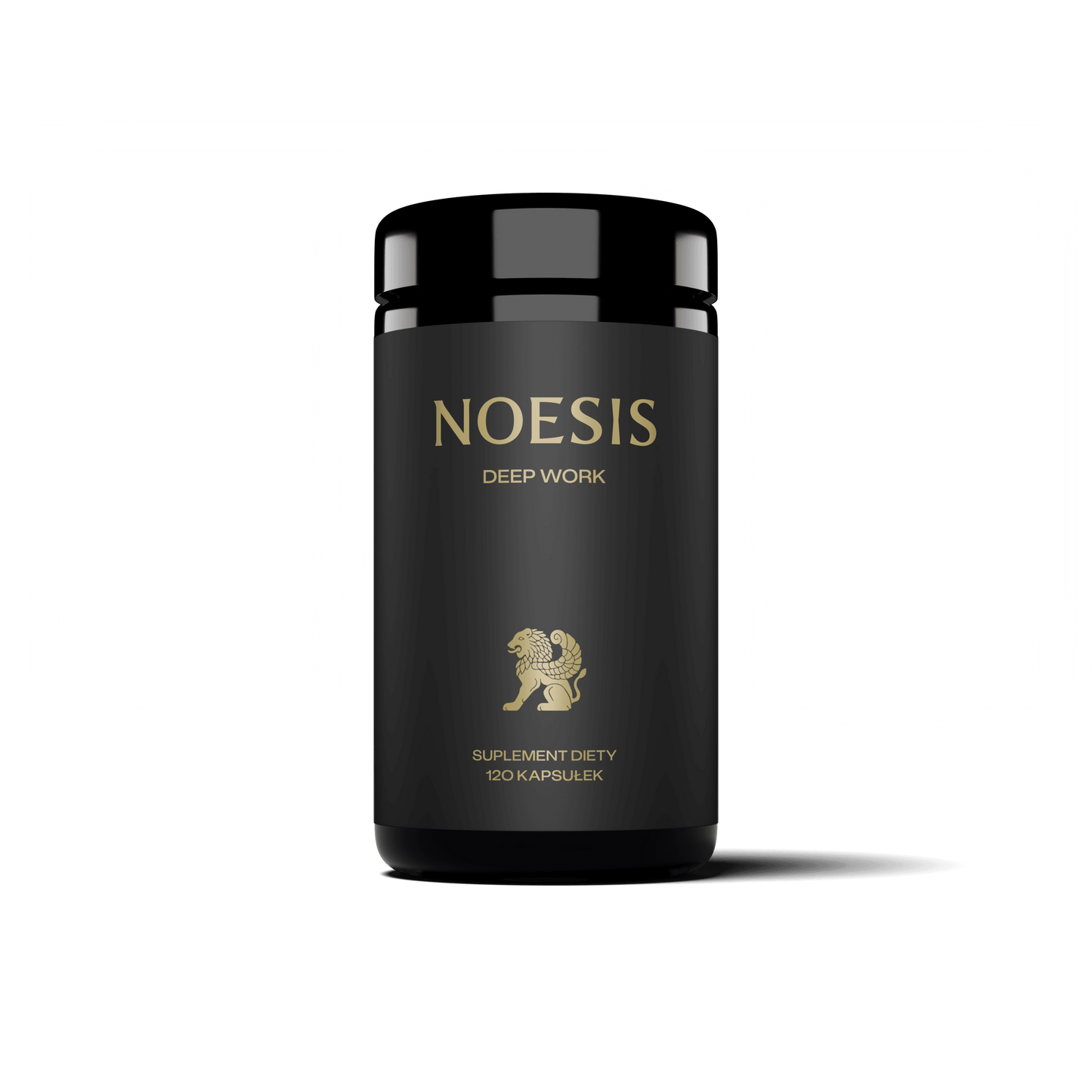
Do you feel tired, lack energy and desire to act, and every task seems too big a challenge? You are not alone. The modern pace of life, the pressure to achieve, overstimulation and lack of time to regenerate are some of the most common causes of a decrease in motivation . And although we often have good intentions, the problem arises, which is the lack of action , which is followed by frustration.
Why is this happening? Because motivation is not a one-time burst, but a process that depends on many factors, both internal and external. If you want to regain energy , find the will to act and maintain a high level of motivation , you need to understand what really drives you.
External motivation – a quick impulse or lasting support?
External motivation is based on a system of rewards, praise and remuneration . It is what is behind many everyday decisions. You act because you are waiting for a bonus, promotion, recognition from your boss or even likes on social media. No wonder, appreciation and noticing your effort are important because they give you the feeling that your effort has value.
People have always responded to external stimuli. However, it is worth remembering that external motivation works a bit like a match: it provides a quick flame that can ignite action , but without the right "fuel" it quickly goes out. Praise and rewards can effectively arouse the desire to take on a specific task , especially if we are talking about simple goals or short-term challenges.
When does extrinsic motivation stop working?
The problem occurs when extrinsic motivation becomes the only source of drive. If you only act when there is a reward waiting for you, it is very easy to fall into a trap. No immediate effect means no action . Then even simple tasks start to seem too difficult or “not worth the effort.”
Research shows that relying solely on extrinsic motivation can lead to decreased engagement over the long term, especially if rewards become routine or predictable. This is why many people, despite initial enthusiasm, lose their “fervor” during longer projects or at work where there is a lack of fresh stimuli.
It is worth remembering that external motivation works best as a supplement, not a foundation. It can be a great "kick" to start, but if you want to act effectively and consistently, you need to take care of deeper sources of drive, i.e. link rewards to personal goals and a sense of meaning.

Intrinsic motivation as the key to lasting commitment
Motivation is an internal force that guides our behavior , stimulates us to act , and allows us to persevere in pursuing our goals. It is responsible for making specific decisions, engaging in tasks, and returning to them despite difficulties. We can say that motivation is an internal "engine" that starts the process of action and allows us not to give up along the way.
This is the most stable source of drive. It is not based on external rewards or other people's expectations, but comes from an internal need for development, curiosity, passion or a sense that what you are doing is in line with your values. This is why people who are driven by internal motivation can act consistently, even when reward , praise or other forms of recognition are rare.
Tapping into your inner motivation starts with understanding what really drives you. It’s thinking about your goals in terms of what makes you happy, what interests you, or what makes you feel like your actions make sense. It’s also about finding small reasons to be proud and happy in everyday tasks, even those that seem routine.
A sense of meaning, joy and striving for self-fulfilment
The key to maintaining a high level of intrinsic motivation is a sense of purpose in what you do. If you see your actions as more than just a duty, motivation doesn't fade so easily. It's about enjoying the process, not just waiting for the end result.
People who achieve the most are very often driven by the desire for self-fulfilment . They do not act for the reward, but because development and overcoming new challenges gives them satisfaction. Striving to be better at what you believe is important, significant is the surest way to lasting commitment.
Remember! Intrinsic motivation doesn't come out of nowhere. Sometimes you need to think about what really drives you, what gives you a sense of fulfillment, and how you can incorporate these elements more often into your daily life and work .
Motivation level – how to keep it high?
Conditions conducive to maintaining energy and willingness to act
Maintaining a consistently high level of motivation is one of the most common challenges faced by people striving to achieve their goals. The key lies in creating the right conditions that will support both energy and the desire to act .
First of all, the body needs balance. The physical and mental state you are in has a direct impact on your actions . Health , adequate sleep, proper nutrition , regular exercise are the foundations that support not only the body but also the mind. A sense of control over the daily rhythm and a clear definition of priorities make it easier to maintain motivation without excessive fluctuations.
It is also important to think about the future. The vision of achieving a goal, even if it is distant, can effectively drive you, as long as you remember why you are doing it. It is worth reminding yourself of the benefits that will come from achieving results, both material ones, as well as those related to development or the joy of overcoming your own limitations.
What mistakes cause a rapid decline in motivation?
One of the biggest mistakes is not having a realistic plan and setting expectations too high. When the task seems too big or undefined, the brain starts to feel pressured, which leads to discouragement and inaction . In this situation, even people who are full of enthusiasm lose motivation because the goal seems unattainable.
Another problem is ignoring the body's signals. Overwork, chronic stress, lack of rest - all of this gradually lowers the level of motivation , until it eventually leads to burnout. Many people also fall into the trap of comparing themselves with others. Instead of focusing on their own pace, they look at other people's achievements , which leads to frustration and the feeling that they are "not doing enough".
Another common mistake is not appreciating small successes. People often focus on what they haven't done yet, instead of noticing how much they have already achieved. And yet praise , even the kind you give yourself, is of great importance in maintaining the will to continue.
If you want your motivation to last a few days, avoid these traps. Take care of the conditions in which you work and live, celebrate your progress, and remember that maintaining high energy levels is a process, not a one-time event.

Simple ways to regain energy and motivation
Make changes to your routine regularly
Routine provides stability, but over time it can kill motivation . Repetition leads to boredom and a drop in motivation , because the brain stops feeling satisfaction from everyday activities. That is why it is worth regularly introducing small changes, such as a new way of performing tasks , a different order of tasks or even a change of workplace. Such "breaks" arouse curiosity, engage and help regain the desire to act.
Movement, health and small achievements as fuel for action
You don't have to wait for great achievements to stimulate motivation . It's the small successes that you note every day that build a sense of progress. A short walk, a healthy meal, completing a task . All of this affects your state and restores energy . Movement supports the production of endorphins, improves well-being and acts as a natural fuel for further action. By taking care of your health and celebrating small achievements, you arouse in yourself a positive tendency to continue to act.
Remind yourself why you are doing this – motivation from the future
Purpose Awareness as the Best Way to Arouse Motivation
If you feel a drop in motivation , remind yourself why you started in the first place. Consciously striving for something that matters to you is one of the most effective ways to awaken the desire to act. A clearly defined goal motivates because it shows that everyday tasks are not random activities, but steps leading to something bigger. Without this awareness , it is easy to fall into a routine and lose meaning.
How does our vision of the future influence our behavior today?
Your thoughts about the future shape the decisions you make here and now. When you have a specific picture of what you want to achieve, it is easier to overcome temporary discouragement or fatigue . The vision of achieving the desired results works like a compass. It guides your behavior even when your motivation level drops. So ask yourself every day: "Why am I doing this?" This simple reflection can restore energy and give meaning to even the most difficult tasks .
DEEP WORK – Your daily support
In moments when motivation , energy and concentration do not want to cooperate, it is worth reaching for real support. DEEP WORK dietary supplement is more than a typical "booster" - it is a comprehensive formula of 24 ingredients created for everyday action at a high level. Without sudden jumps, without artificial stimulation and without sudden drops in form.
DEEP WORK supports the nervous system, helps maintain focus and mental resilience even on demanding days. This is a solution for people who want to act calmly , consistently and without distractions - with full control over their efficiency.
This supplement is for you if:
- you finally need to act without distraction,
- you want to work without constant tension and overstimulation,
- you care about real regeneration and mental fitness,
- you want to maintain a stable energy level throughout the day,
- you take care of your mind and strong nervous system – the foundation of effectiveness.
If you feel it's time to regain control over your work pace and willingness to act - DEEP WORK can be your daily support on the way to better results and a calmer head.

Summary – motivation is a process you can control
Motivation is not a coincidence or an innate trait. It is a process that you can consciously shape, adapting it to your needs, goals and current state. Each of us works differently, so there is no one universal method for regaining energy and the will to act . The key is to know yourself and learn to manage what drives you.
Think about what works best for you
Don't copy others' solutions. Think about what actually increases your level of motivation . Is it the vision of a reward or maybe satisfaction with the process itself? Is it pressure or maybe peace and lack of expectations that affect you? Awareness of your needs and reactions is the first step to effectively controlling your own commitment and regaining energy when you need it most.
How to stay motivated and energized in the long run
The biggest challenge is not to get motivated for a moment, but to keep it for a longer period of time. This means taking care of the foundations, such as health, regeneration, clearly defined goals. Remember that even the best motivation will fade if you ignore your fatigue, overload or lack of meaning in your actions.
Motivation grows when you give yourself space to be happy , to appreciate your progress, and to know that every step brings you closer to the future you want to build. These are the daily decisions that shape your process , regardless of the occasional dips in form.







